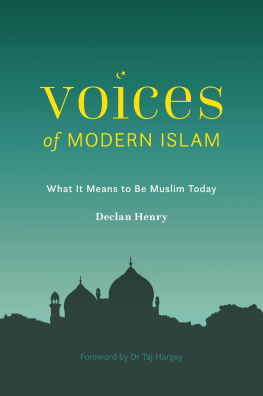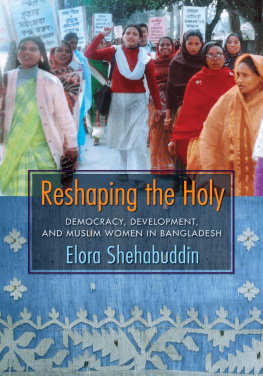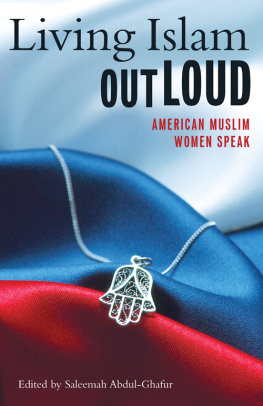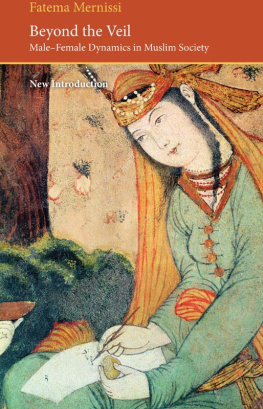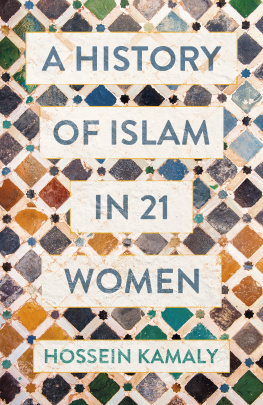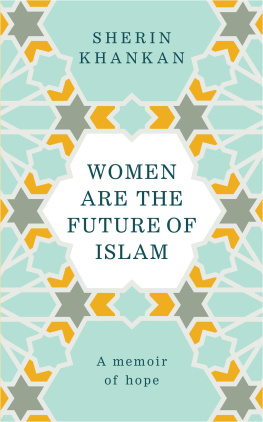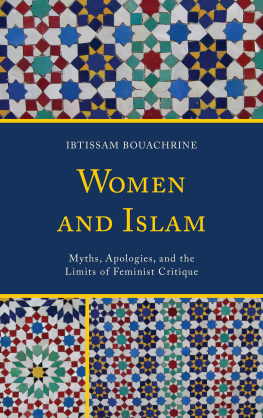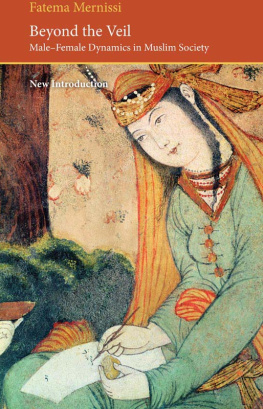Cover
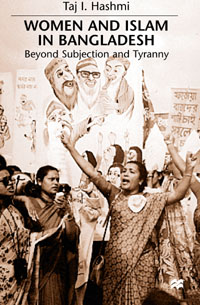
Sociology
Development Studies
| title | : | Women and Islam in Bangladesh : Beyond Subjection and Tyranny |
| author | : | Hashmi, Taj ul-Islam. |
| publisher | : | Palgrave Macmillan (UK) |
| isbn10 | asin | : | 0333749596 |
| print isbn13 | : | 9780333749593 |
| ebook isbn13 | : | 9780333993873 |
| language | : | English |
| subject | Women--Bangladesh--Social conditions, Muslim women--Bangladesh--Social conditions, Women in Islam--Bangladesh. |
| publication date | : | 2000 |
| lcc | : | HQ1745.6.H375 2000eb |
| ddc | : | 305.48/697105492 |
| subject | : | Women--Bangladesh--Social conditions, Muslim women--Bangladesh--Social conditions, Women in Islam--Bangladesh. |
Page I
Women and Islam in Bangladesh
Page II
Page III
Women and Islam
in Bangladesh
Beyond Subjection and Tyranny
Taj I. Hashmi
Professor and Director
School of Liberal Arts and Science
Independent University
Bangladesh

Page IV

First published in Great Britain 2000 by
MACMILLAN PRESS LTD
Houndmills, Basingstoke, Hampshire RG21 6XS and London
Companies and representatives throughout the world
A catalogue record for this book is available from the British Library.
ISBN 0333749596

First published in the United States of America 2000 by
ST. MARTINS PRESS, INC.,
Scholarly and Reference Division,
175 Fifth Avenue, New York, N.Y. 10010
ISBN 031222219X
Library of Congress Cataloging-in-Publication Data
Hashmi, Taj ul-Islam, 1948
Women and Islam in Bangladesh : beyond subjection and tyranny /
Taj. I. Hashmi
p. cm.
Includes bibliographical references and index.
ISBN 031222219X (cloth)
1. WomenBangladeshSocial conditions. 2. Muslim women
BangladeshSocial conditions. 3. Women in IslamBangladesh.
I. Title.
HQ1745.6.H375 2000
305.48'697105492dc21
9944913
CIP
Taj I. Hashmi 2000
All rights reserved. No reproduction, copy or transmission of this publication may be made without written permission.
No paragraph of this publication may be reproduced, copied or transmitted save with written permission or in accordance with the provisions of the Copyright, Designs and Patents Act 1988, or under the terms of any licence permitting limited copying issued by the Copyright Licensing Agency, 90 Tottenham Court Road, London W1P 0LP.
Any person who does any unauthorised act in relation to this publication may be liable to criminal prosecution and civil claims for damages.
The author has asserted his right to be identified as the author of this work in accordance with the Copyright, Designs and Patents Act 1988.
This book is printed on paper suitable for recycling and made from fully managed and sustained forest sources.

Printed and bound in Great Britain by
Antony Rowe Ltd, Chippenham, Wiltshire
Page V
To the memory of my great grandfather, Maulana
Karamat Ali Jaunpuri (180073), who wrote Miftah
ul-Jannat for virtuous Muslim women and advocated
female literacy
Page VI
Page VII
Contents
Preface and Acknowledgements vii 1 Introduction 1 2 Women in Islam: a Reappraisal 12 3 Mullas, Popular Islam and Misogyny 61 4 Women as Victims of the Salish: Fatwas, Mullas and
the Village Community 96 5 NGOs and Empowerment of Women: Some Problematic
Prognoses 134 6 Militant Feminism, Islam and Patriarchy: Taslima
Nasreen, Ulama and the Polity 180 7 Conclusions 205 Notes 210 Bibliography 231 Index 242
Page VIII
Preface and Acknowledgements
The Great Question that has never been answered and which I have not yet been able to answer, despite my thirty years of research into the feminine soul is What does a woman want?
Sigmund Freud
While my book-project on Islam in Bangladesh society and politics was in contemplation in 1993, Taslima Nasreen, the bold and controversial feminist writer of Bangladesh, entered the limelight. Local and international media, human rights groups and individuals expressed their solidarity with her, condemning the so-called Islamic fundamentalists for issuing the fatwa to kill against her. Many of them condemned the people in general and the Bangladesh government in particular for their failure to protect the freedom of expression and the lives and property of free thinkers. Some Western media even portrayed Bangladesh as an obscurantist polity run by fanatics having no respect for women, minorities and other under-privileged groups.
In mid-1994, while I was a research-fellow at the National Centre for South Asian Studies in Melbourne, working on Women and Islam in Bangladesh with special reference to the writings of Taslima Nasreen, she again emerged as yet another victim of Islamic fundamentalists who demanded her execution for her alleged blasphemous comments suggesting the rewriting of the Quran. Finally, she had to seek political asylum in Sweden and leave Bangladesh in early August of 1994.
The Taslima Nasreen episode is a watershed in the contemporary history of Bangladesh. She has not only drawn world attention to Bangladesh, this time not as one of the poorest in the economic sense but with regard to the status of women and respect for human rights. However, despite the so-called Islamists opposition to the writer, the average Bangladeshi Muslim remained perplexed and annoyed with the promoters of Nasreen. By 1994 Bangladesh society had become sharply polarized between the pro- and anti-Nasreen groups, the latter outnumbering and overwhelming the former. Consequently some liberal and progressive writers and intellectuals
Page IX
with pro-Nasreen sympathies encountered serious opposition and even death-threats from various Islamic groups. Many liberal democrats and secular Bangladeshis also condemned Nasreen for her counter-productive writings and activities.
Although members of both the Islamic and secular groups cast aside her writings for various reasons, I have found a substantial part of Nasreens work both interesting and thought-provoking. Her writings, on the one hand, are reflective of the truth in relation to the abuse of women and gender discrimination in the name of Islam and on the other, of her lack of knowledge and understanding of Islam and the intricacies of human relationships, civilizations and social sciences. Notwithstanding this, the controversy about her writings and statements reveals that there has been a wide gap between the understanding of Islamists and feminists vis--vis the rights and status of women in general and those of Bangladesh in particular. Since the gulf has not been bridged (but rather widened), they remain in two antagonistic camps divided by mutual prejudice and lack of understanding about each other.
Next page

